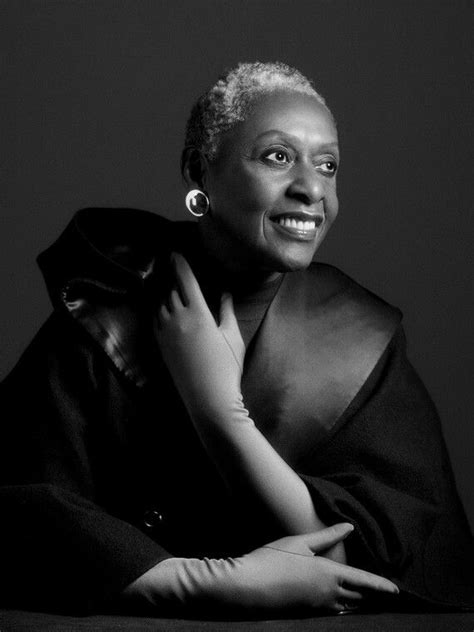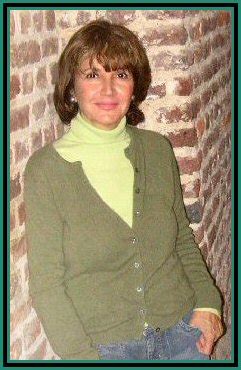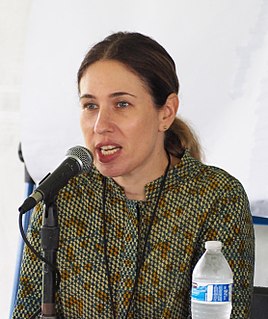A Quote by Patrick Rothfuss
I thought of all the others who had tried to tie her to the ground and failed. So I resisted showing her the songs and poems I had written, knowing that too much truth can ruin a thing. And if that meant she wasn't entirely mine, what of it? I would be the one she could always return to without fear of recrimination or question. So I did not try to win her and contented myself with playing a beautiful game. But there was always a part of me that hoped for more, and so there was a part of me that was always a fool.
Related Quotes
Now very much against her will, she thought of the way Jace had looked at her then, the blaze of faith in his eyes, his belief in her. He had always thought she was strong. He had showed it in everything he did, in every look and every touch. Simon had faith in her too, yet when he'd held her, it had been as if she were something fragile, something made of delicate glass. But Jace had held her with all the strength he had, never wondering if she could take it--he'd known she was as strong has he was.
He was always part of her thoughts, and now that he was real, he was inescapably part of her life, but it was as she had told her mother: saying he was part of her or that they were more than friends sounded like love, but it seemed like loss as well. All the words she knew to describe what he was to her were from love stories and love songs, but those were not words anyone truly meant.
Tessa had begun to tremble. This is what she had always wanted someone to say. What she had always, in the darkest corner of her heart, wanted Will to say. Will, the boy who loved the same books she did, the same poetry she did, who made her laugh even when she was furious. And here he was standing in front of her, telling her he loved the words of her heart, the shape of her soul. Telling her something she had never imagined anyone would ever tell her. Telling her something she would never be told again, not in this way. And not by him. And it did not matter. "It's too late", she said.
She had always told herself that she did hti job because she wanted to help others; afterall, hadn't Maurice told her once that the most important question any individual could ask was, "How might I serve?" If her response to that question had been pure, surely she would have coninued with the calling to be a nurse.... But that role hadn't been quite enough for her. She would have missed the excitement, the thrill when she embarked on the work of collecting clues to support a case.
I was the first person that had been so kind to Iman Abdulmajid. As time went on, and she became successful, signed with an agency, when she had to make big decisions, she wouldn't always talk to an agent, she'd ask me. I'd give her good advice and she'd be on her way. When I had ideas to do things like the Black Girls Coalition, I would always talk to her, she always loved my ideas. She trusts me.
Because of course she had known she must go. She always did the thing because in obedience lay the integrity that God asked of her. If anyone had asked her what she meant by integrity she would not have been able to tell them but she had seen it once like a picture in her mind, a root going down into the earth and drinking deeply there. No one was really alive without that root.
She always had a headache, or it was too hot, always, or she pretended to be asleep, or she had her period again, her period, always her period. So much so that Dr. Urbino had dared to say in class, only for the relief of unburdening himself without confession, that after ten years of marriage women had their periods as often as threes times a week.
Before her marriage she had thought that she had love within her grasp; but since the happiness which she had expected this love to bring her hadn’t come, she supposed she must have been mistaken. And Emma tried to imagine just what was meant, in life, by the words “bliss,” “passion,” and “rapture” - words that had seemed so beautiful to her in books.
Perhaps I will die too, she told herself, and the thought did not seem so terrible to her. If she flung herself from the window, she could put an end to her suffering, and in the years to come the singers would write songs of her grief. Her body would lie on the stones below, broken and innocent, shaming all those who had betrayed her. Sansa went so far as to cross the bedchamber and throw open the shutters ... but then her courage left her, and she ran back to her bed, sobbing.
Unlike me, Renee was not shy; she was a real people-pleaser. She worried way too much what people thought of her, wore her heart on her sleeve, expected too much from people, and got hurt too easily. She kept other people's secrets like a champ, but told her own too fast. She expected the world not to cheat her and was always surprised when it did.
One thing I did have under my belt was, my mother lost her mother when she was 11. She mourned her mother her whole life and made my grandmother seem present even though I never met her. I couldn't imagine how my mom could go on but she did, she took care of us, she worked two jobs and had four children. She was such a good example of how to conduct oneself in a time of grief. When I lost my husband, I tried to model myself as much as I could on her.
There was a warmth of fury in his last phrases. He meant she loved him more than he her. Perhaps he could not love her. Perhaps she had not in herself that which he wanted. It was the deepest motive of her soul, this self-mistrust. It was so deep she dared neither realise nor acknowledge. Perhaps she was deficient. Like an infinitely subtle shame, it kept her always back. If it were so, she would do without him. She would never let herself want him. She would merely see.
I tried to breathe, failing. I clutched her to me, tears slipping from under my closed eyes. It was as if her soul was liquid fire and I could feel her aura, swirling about mine. She was taking my aura. But I wanted to give it to her, to cat her in a small part of me and protect her. Her needs made her so fragile.
A beloved student of mine told me she believed the earth was approximately 6,000 years old. She was smart, she was thoughtful, and she was wrong. But I couldn't discount her - I respected her too much. So I debated with her, using every bit of science and logic I had, but I still failed to convince her that the earth was billions of years old.





































